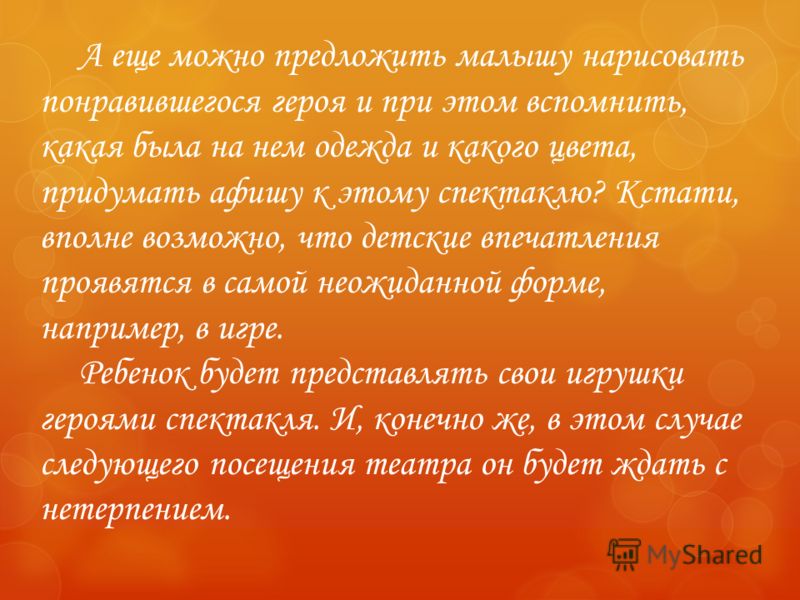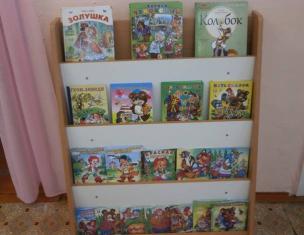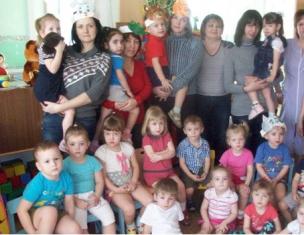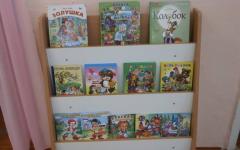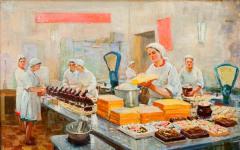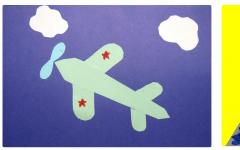My first trip to the theater remember your first going to the theater? Remember how this all amazing world fascinated, so not like everyday, to the one that remained behind theatrical doors? Perhaps your fingers still feel what was on the touch of a slightly shabby scarlet velvet chairs, struck, as it seemed then, in childhood, unprecedented luxury, and a heavy silk fabric of the curtain, which was able to touch the sneeze from mom.
Or maybe you remember a special, not comparable "theatrical" smell that you feel, barely crossing the threshold? And how freeing from happiness is a heart at that moment, when it starts to slowly fade the light and the curtain is moving out, followed by a meeting with magic. And today you first lead to the theater of your baby.

The theater is not more consistent with the peculiarities of children's perception - it affects all the sensory systems of the child: not only for vision and hearing, but also on the smell, touch. Correctly pick up the "components" - that's what is needed that the first meeting with the world of scenery, costumes and sophods for your baby has become a holiday. This will require: the right age, a suitable performance, proper preparation and competent fixation of the "material passed".
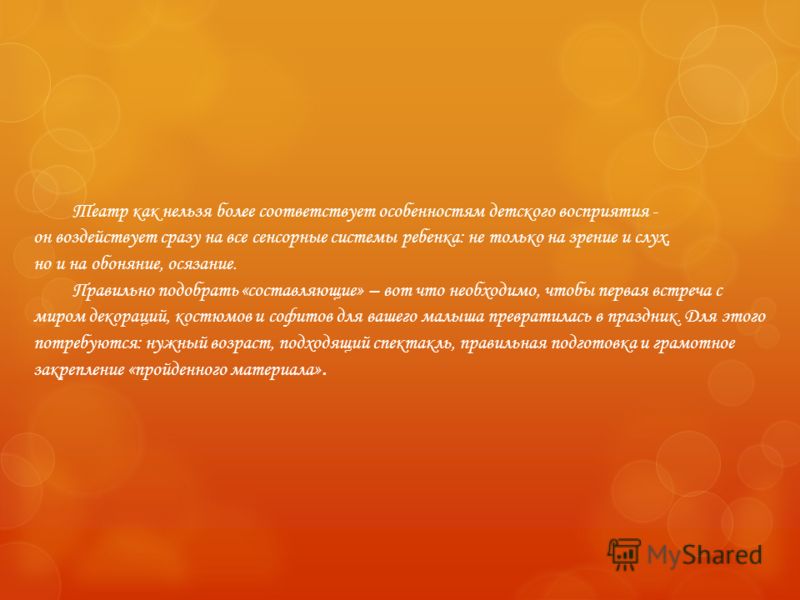
The necessary age in general, children's psychologists recommend paying attention not to physical age, but on emotional. When the child appears the need for transformation and imitation, i.e., when the babes, the "Princesses" and "Spiders" players go to the "Princes" and "Spiders" games, go tablecloths, curtains, lipstick and mother's weekend shoes, can be safe go to the theatre. Your young "imitator" is ready to perceive theatrical convention.
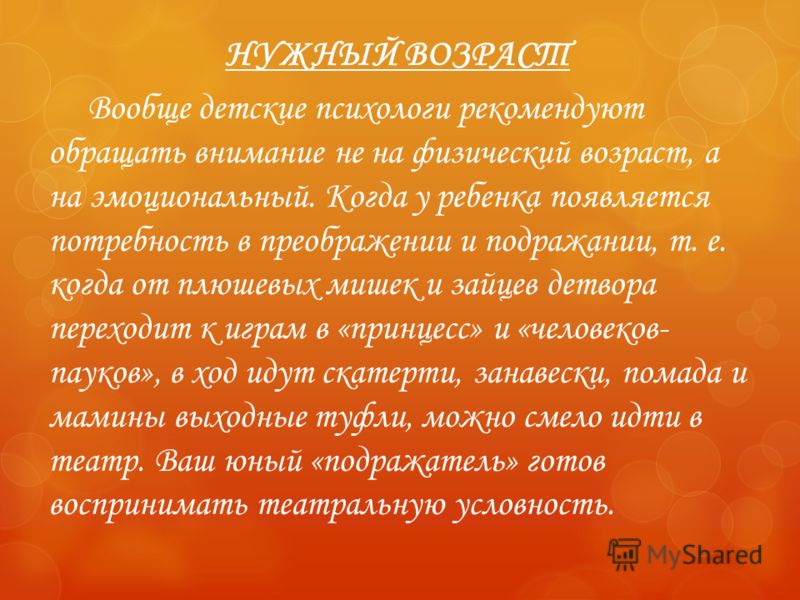
Most performances are designed for children from five years. And this is not accidental, as it is due to the psychology of the child. Two-cellar baby, at best, will not understand what is happening on the stage, and it will simply be happy with interesting toys, and at worst it will take everything that happens for reality. And this sometimes defines its further love or categorical dislike for the theater as a whole. To respond to the first spectacle in your life, a child can completely differently: he may be surprised, interested, and may be frightened or upset.
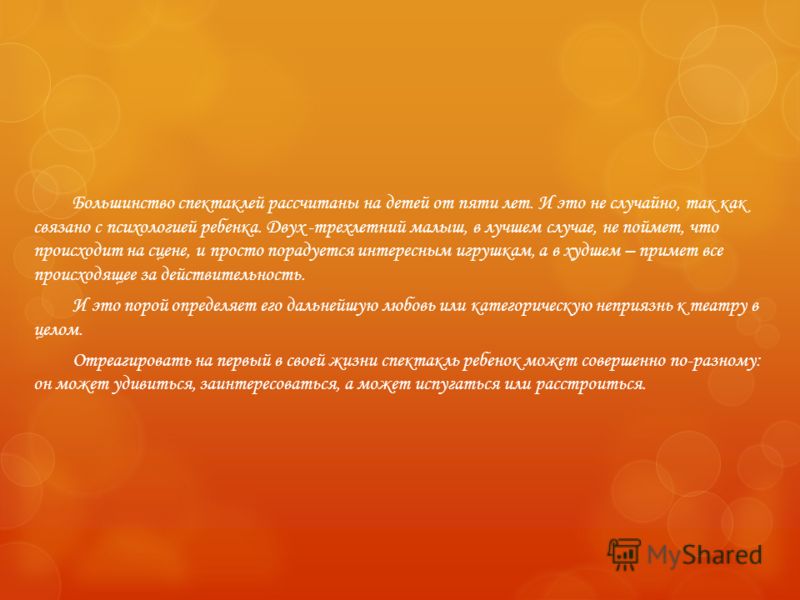
Suitable performance If the crumb is three or four years old, it is better to start with a puppet theater, where most performances are based on acquaintances of the baby plots and participate in them already acquaintances on books characters: Emely, kids, wolf, fox, bun. It will be easier for a child to understand the meaning of what is happening, and interest in action will not disappear. Best of all, if the duration of the performance is no more than an hour (40-50 minutes).
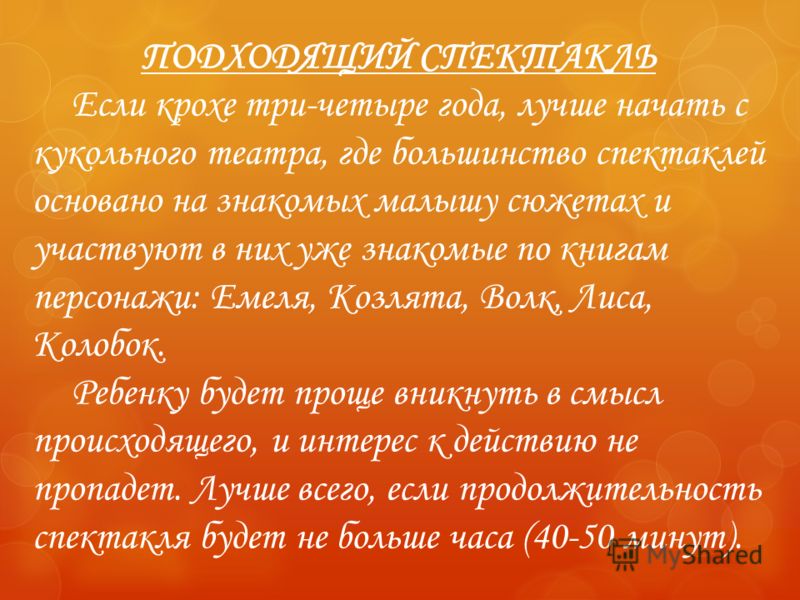
For five - six years, the plot range of performances is much wider: it is not only fairy tales, but also performances on more "adults" plots - "Bremen Musicians", "Bambi", "Princess Cat". The duration of the performance is no longer so rigidly limited, but still better if it is with an intermission. For the smallest boldly, you can recommend the play-game where there is a direct communication with the hall.

From the small viewer in the theater requires an understanding and awareness of such eternal concepts as: "Good" and "Evil", "Friendship" and "Enmity", "Love" and "Hate". Often it happens that the performance causes the guys a desire to read and book. And it happens on the contrary: they go after reading the book. After all, all elements of education, the child absorbs much better in an allegorical form than some kind of edge. The theater can be your first assistant in the upbringing of a young tip. In the theater, this is "playing". The kid comes out the heroes, easily adopt new behaviors. Decent imitation of the deed of good heroes takes as an example, and the actions of negative heroes perceives adequately situations.
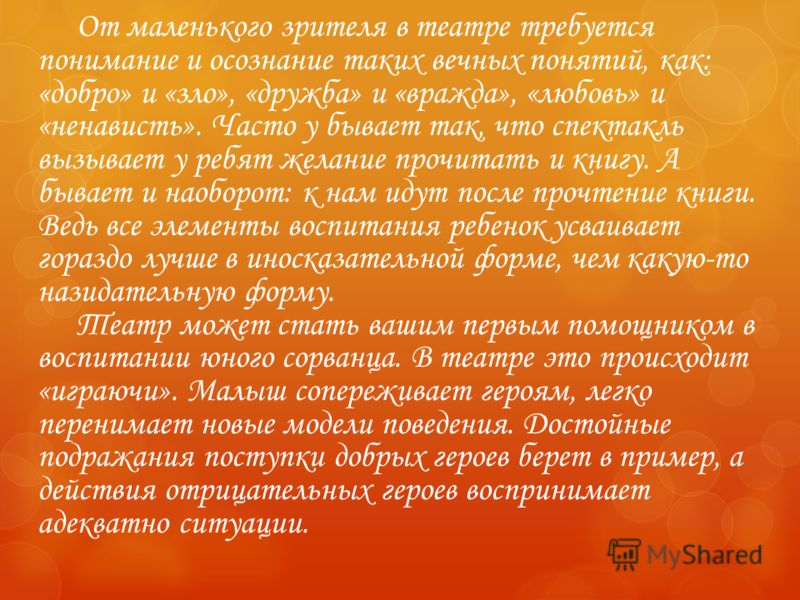
Proper preparation for acquaintance with the theater is better to go on theatrical production, the plot of which you with your child is already familiar. Read the fairy tale, based on which the performance is put, look together the drawings, commenting on them. After all, what happens on the stage is sometimes pretty different from the literary plot. Especially if the fabulous action occurs on the scene of the Opera and Ballet Theater. Be sure to explain to the child the specifics of ballet art. Otherwise, you risks to the end of the play hear surprised: "Mom, why don't they talk?"

It is better to immediately tell you that in the ballet of the movement replace words. And for clarity, play "Images". Let the kid silently depict a bear, wolf or bunny. For the first visit, tickets are better to buy in place in the middle of the hall. For example, there are performances where the heroes run into the hall. After all, the child looks at the scene, he forgets everything in the world, all his emotions, experiences are associated with a fairy tale. And so, unexpectedly, the "real" wolf pops up on the kid! For many children, this is a real "nightmare". After such a stress, the crumb may refuse to refuse the "Warms of theater".
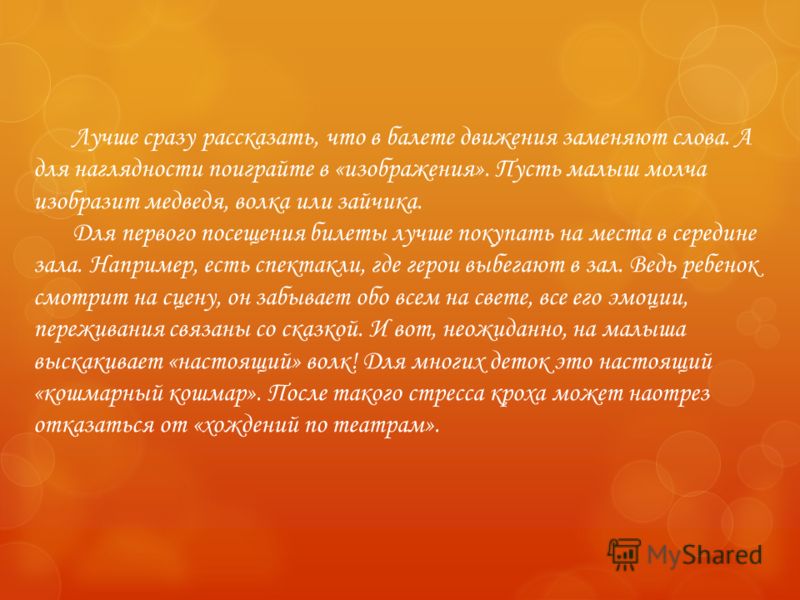
Some parents, not having time to step up the theater threshold, immediately go to the buffet. Leave it to the third visit. Let the first meetings of the child with wonderful will be associated with the play itself, with photos of artists in the lobby. Otherwise, the buffet and queues in it can remain the most vivid impression of the theater. And your holiday should be primarily theatrical. This will also contribute to a special "theater" dress or costume, as well as the front-end footwear.
![]()
And, of course, leave the house in advance. It is best to come to a performance 30 minutes before the start. A visit to the theater is always a holiday for everyone, and for a child - especially. And this event does not tolerate hurry and bustle. In the theater, everything is important: wardrobe, hall, buffet, hall. And the child just needs time to consider it all and realize where it is. In addition, many parents, bringing children to the theater, offer them to find their place, explaining where the number of a number is written, how to find his chair.
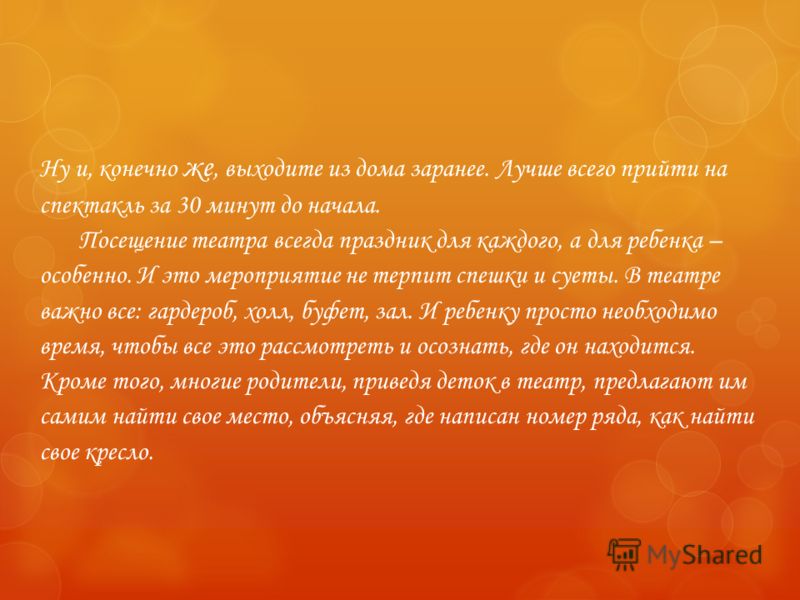
Fastening the "covered material" remember how trips with parents in the theater became for each of us real holidays, of which later memories of childhood are? And the discussion of performances was delayed for several evenings? In today's era of computers and television, we will also communicate as briefly as the notorious ICQ. "Did you like the performance"? - "Yes, Mom" \u200b\u200band smiley smile. Further discussion seems to be not required.

What questions can be puzzled by "computerized" parents of their child to awaken fantasy and interest in the theater? The list is universal and can approach any spectral: 1) What is the name of the play? 2) What is the name of the main character of the performance? 3) Does he have friends and enemies? 4) What is their name? 5) Would you like to make friends with them? 6) What act of the main character did you like (did not like)? 7) How would you do in the same situation?
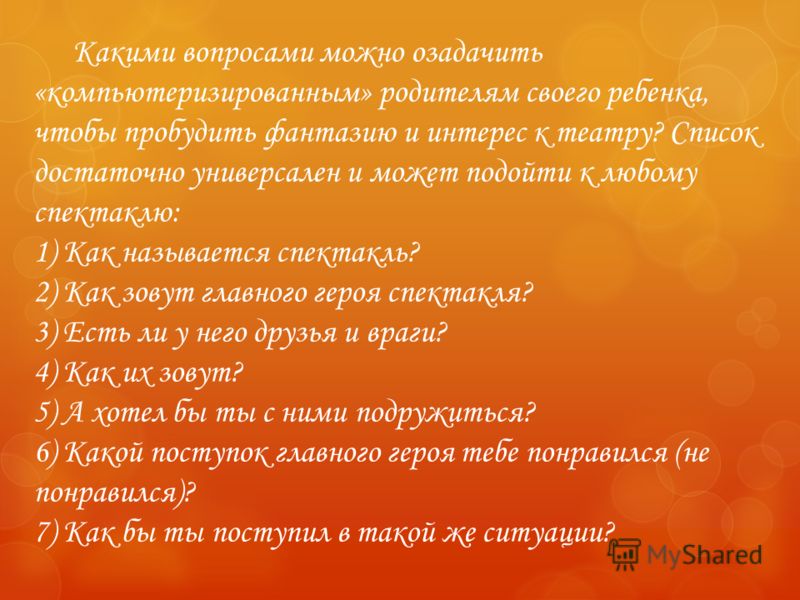
8) What is this play? (Offer the child options: about friendship, love, loneliness, justice?). 9) Did you like the costumes of the actors and the things they used? 10) Did you like the music that sounded in the play? 11) What do you think who otherists are busy in the play? (Look into the program, select, for example, the artist.) 12) How do you think correctly called the play, or could it be called somehow differently? How?
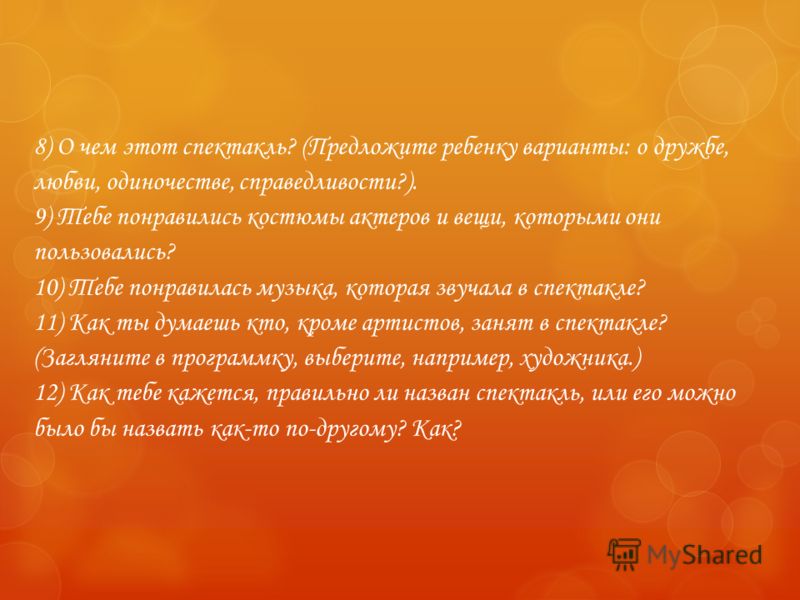
And you can also offer the baby to draw the hero's favorite one and at the same time remember what clothes was on it and what color, come up with a poster to this spectral? By the way, it is quite possible that children's impressions will be shown in the most unexpected form, for example, in the game. The child will present his toys of the spectacle heroes. And, of course, in this case, he will be looking forward to the next visit.
